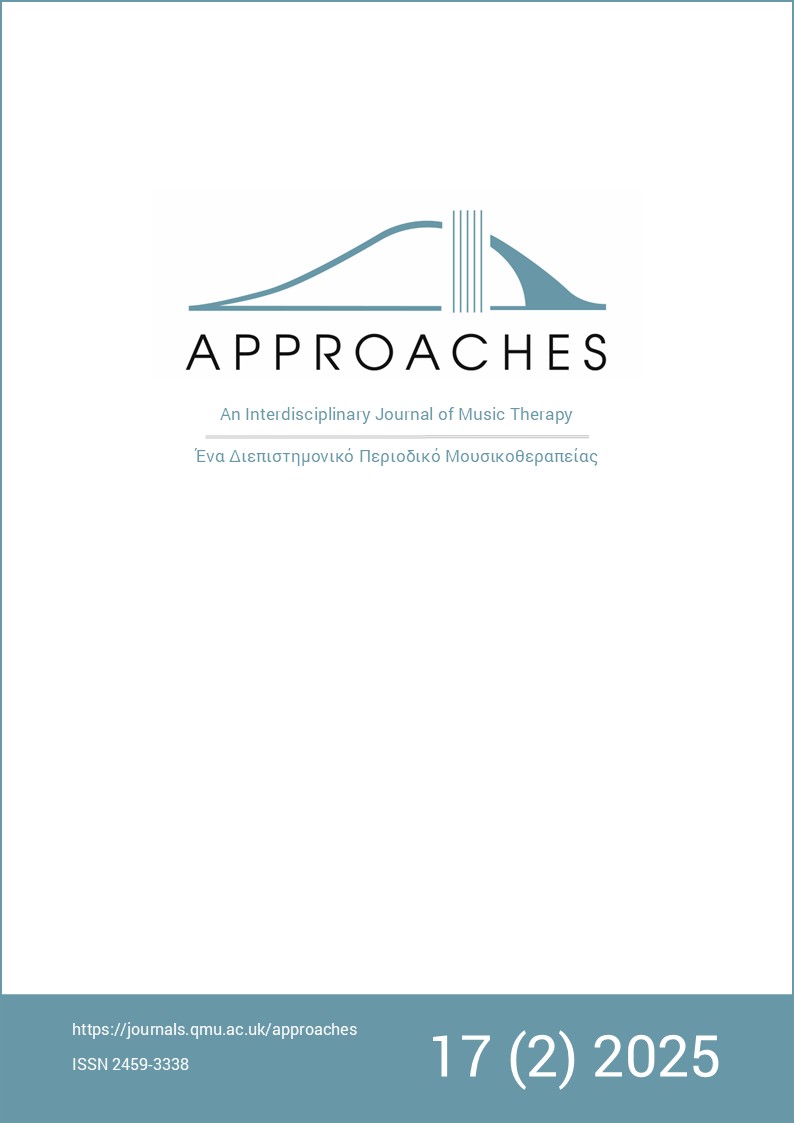The effects of personally preferred music on mood and behaviour in individuals with dementia: An exploratory pilot study
DOI:
https://doi.org/10.56883/aijmt.2024.78Keywords:
preferred music, dementia, assisted living community, person-centred approach, music-based interventionAbstract
Music has been shown to benefit individuals with dementia. There are, however, limited studies examining how assisted living staff members use preferred music for dementia patients. This controlled pilot study aimed to determine: 1) whether preferred music is effective in improving mood and behaviour and 2) whether a person-centred approach to music-based interventions is feasible for individuals with dementia. The 20 participants (mean age (SD) = 81 (8)) listened to a preferred song or control song in random order over 6 weeks with a five-day wash out period between the exposures. Neurobehavioral Rating Scale (NRS) and Observed Emotion Rating Scale (OERS) were used to measure participants’ emotions and behaviour changes. Blood pressure and heart rate were collected to understand physiological responses to music. NRS was used to measure the behavioural changes in response to a listening intervention comprised of both preferred music and control music over the course of 14 sessions administered over six weeks. We observed no changes in NRS symptoms post-intervention. OERS scores and vital signs did not differ significantly between the preferred music and the control song despite trends. Participants/staff/family expressed the importance of preferred songs to evoke specific memories and increase well-being. Thematic analysis using sentiment components indicated a predominance of positive sentiment in the meaningful music category and a minor occurrence of negative sentiment in the control music.
Downloads
Published
Issue
Section
License
Copyright (c) 2024 Stephanie Cairo, Kyurim Kang, Patricia Izbicki, Molly Isinghood, Tabassum Majid, Alexander Pantelyat

This work is licensed under a Creative Commons Attribution-NonCommercial-NoDerivatives 4.0 International License.




